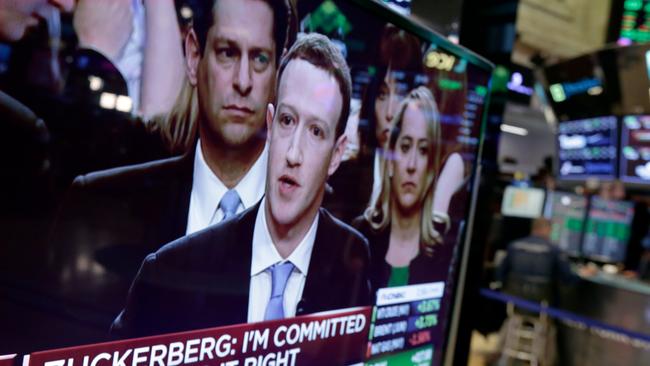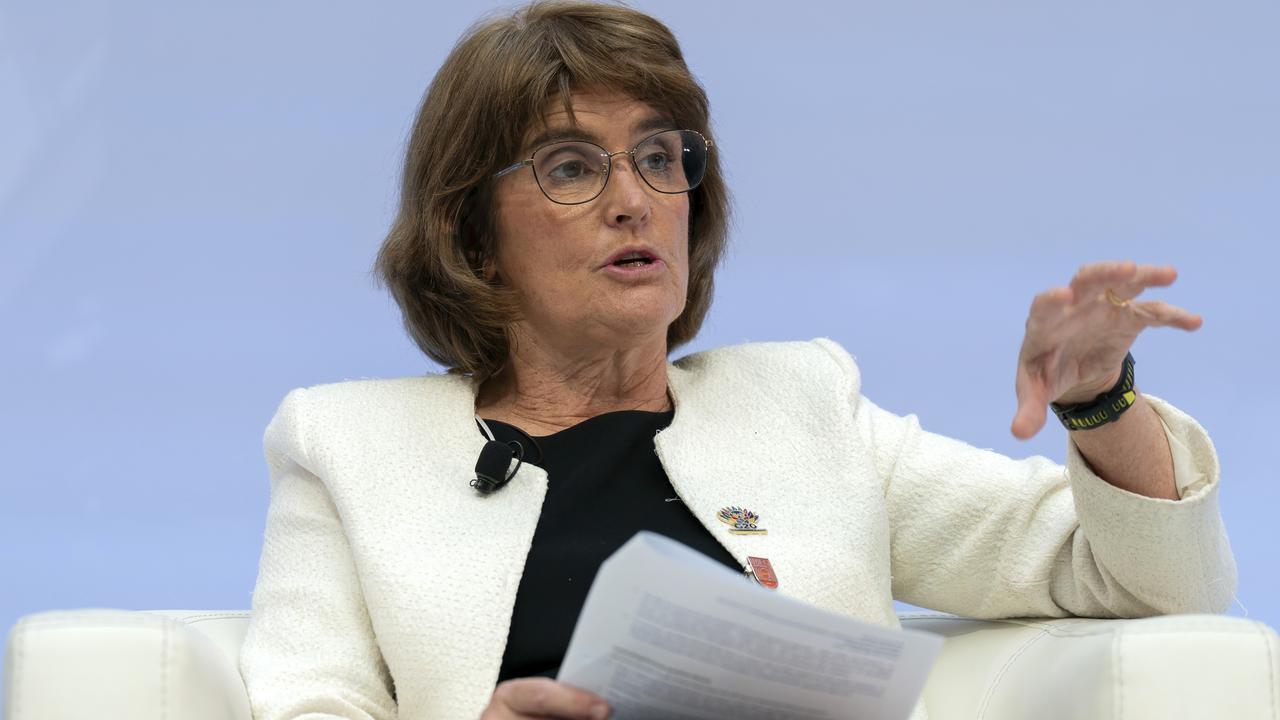Wall Street rallies as Xi helps calm trade war fears
Wall Street rallied overnight after remarks from China’s President helped soothed concerns about a trade war.

Major US stock indexes climbed Tuesday, with the Dow adding more than 400 points, as remarks from Chinese President Xi Jinping soothed concerns about a trade war that had rattled markets in recent weeks.
The gains were broadbased with nine of 11 sectors in the S&P 500 marching higher. Energy stocks in the index led the way, rising 3.3 per cent for their best day since Nov. 30, 2016, as the price of crude oil rallied 3.3 per cent to $US65.51 a barrel. The tech sector also helped drive the broader index, rising 2.5 per cent as investors responded positively to Facebook Chief Executive Mark Zuckerberg’s testimony before Congress about the social-media company’s handling of personal-user data.
While President Xi’s comments were calming for the market on a short-term basis, concerns over trade will likely linger, several analysts said.
Bob Doll, senior portfolio manager and chief equity strategist for Nuveen Asset Management, said he thinks there will be “more nasty words” to come from both sides, and Mr. Xi’s recent comments are just one chapter in the story.
“It’s a bumpy road and today’s a good day,” he said, adding that his firm will probably sell some stocks that are doing especially well and perhaps buy them back at a lower cost in a few days.
The Dow Jones Industrial Average rose 428.90 points, or 1.8 per cent, to 24408.00, after climbing as much as 532 points earlier in the session. The S&P 500 rose 43.71 points, or 1.7 per cent, to 2656.87, while the technology-focused Nasdaq Composite climbed 143.96 points, or 2.1 per cent, to 7094.30. All three indexes have climbed for five of the past six trading sessions.
Boeing, which has become an unofficial proxy for trade fears, was the best performer in the Dow, rising $US12.35, or 3.8 per cent, to $US334.83.
Meanwhile, shares of Facebook added 7.11, or 4.5 per cent, to 165.04 — their largest percentage gain in almost two years.
James Cakmak, an analyst for Monness, Crespi, Hardt & Co., said pressure on large-cap technology companies could hold through the midterm elections in the fall.
“I think the degree of regulatory pressures are likely to ease after this, but they’ll also likely still linger through November,” he said, referring to Mr. Zuckerberg’s testimony Tuesday.
Airline companies were one of the few drags on the market as American Airlines gave a guidance update that failed to please investors. Its shares fell 2.36, or 4.7 per cent, to 47.46, while United Continental slumped 93 cents, or 1.4 per cent, to 67.59, and Southwest Airlines dropped 72 cents, or 1.3 per cent, to 54.13.
Gains for US stocks came as the Stoxx Europe 600 climbed 0.8 per cent. Asian stocks also rose after the Chinese president pledged to significantly broaden market access this year.
Speaking at the Boao Forum, an annual economic summit, Mr. Xi pledged Beijing’s commitment to further economic liberalisation as well as promising greater intellectual property protection and increased access to China’s financial and manufacturing sectors for foreign companies.
While he made no direct reference to President Donald Trump or China’s simmering trade tensions with the US, his conciliatory tone was taken well by the market.
While the speech succeeded in alleviating fears of a bruising trade war between the US and China, it may not have drawn a line under the recent tit-for-tat tariffs exchanged between the two superpowers.
“The speech does not allow the Trump Twitter feed to report ‘mission accomplished.’ If the US cannot spin a win, trade tensions are likely to continue,” said Paul Donovan, chief economist at UBS Global Wealth Management in a podcast on Tuesday.
In Asia, Hong Kong’s Hang Seng index rallied 1.7 per cent, as did Shanghai’s composite index, with Chinese banks among the sharpest risers.
Dow Jones





To join the conversation, please log in. Don't have an account? Register
Join the conversation, you are commenting as Logout